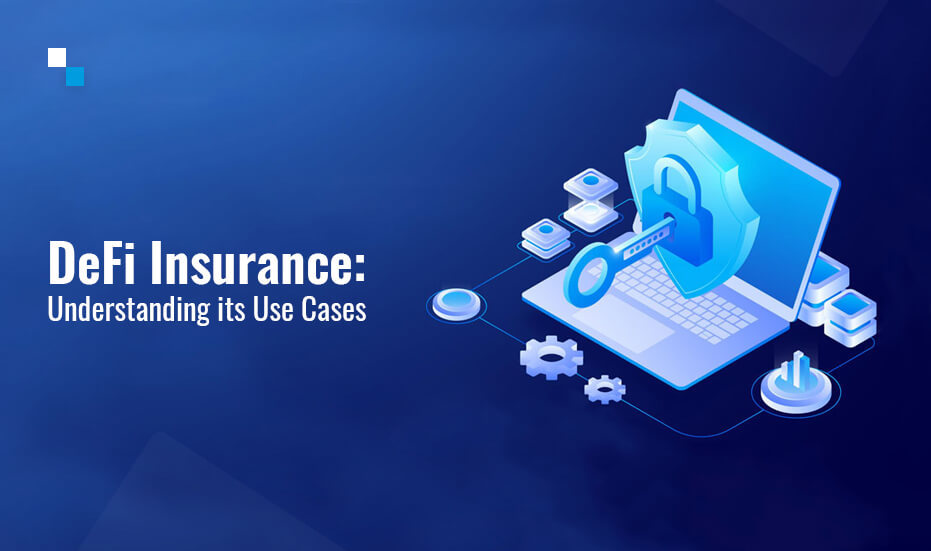In recent years, decentralized finance (DeFi) has revolutionized the way we think about traditional financial systems. By leveraging blockchain technology and smart contracts, DeFi has opened up a world of opportunities for individuals to access financial services in a decentralized and inclusive manner. One such groundbreaking practice within the DeFi ecosystem is DeFi insurance , which aims to provide coverage and mitigate risks for participants in this fast-growing space. In this comprehensive guide, we will explore the concept of DeFi insurance, its benefits, and its impact on the DeFi landscape.
What is DeFi Insurance?
DeFi insurance is a form of risk management that offers protection against potential losses and vulnerabilities in the decentralized finance ecosystem. It acts as a safety net for users, investors, and projects by providing coverage for various risks such as smart contract exploits, hacks, and other unforeseen events. By utilizing blockchain technology and smart contracts, DeFi insurance aims to create a transparent, efficient, and trustless environment for insuring assets and investments in the DeFi space.
The Need for DeFi Insurance
As the DeFi ecosystem continues to expand, the need for robust risk management solutions becomes increasingly evident. While DeFi offers exciting opportunities for participants to earn yields, provide liquidity, and access financial services, it also exposes them to potential risks. Smart contract vulnerabilities, hacking incidents, and protocol failures can result in significant financial losses. DeFi insurance addresses these concerns by offering a layer of protection, instilling confidence in users and fostering the overall growth and stability of the DeFi market.
How Does DeFi Insurance Work?
DeFi insurance operates on the principles of transparency, decentralization, and smart contract automation. Let's explore the key components of the DeFi insurance process:
- Insurance Pools: DeFi insurance platforms typically operate using pooled funds contributed by users seeking coverage. These insurance pools function similarly to traditional insurance policies, where participants pool their assets to collectively provide coverage for potential risks.
- Premiums and Claims: Participants in the insurance pools pay premiums in exchange for coverage against specific risks. When a claim event occurs, such as a smart contract exploit or a hack, users can submit a claim to the insurance pool. The claim is then evaluated based on predefined conditions and, if approved, the claimant receives compensation from the pool.
- Governance and Voting: Many DeFi insurance platforms
- incorporate governance mechanisms that allow participants to actively participate in decision-making processes. Users can vote on key parameters such as premium rates, coverage limits, and the approval of claims. This democratic approach enhances the transparency and inclusivity of the insurance platform.
- Smart Contract Integration: DeFi insurance relies on smart contracts to automate the insurance process. Smart contracts are programmed to execute predefined conditions and trigger payouts in the event of a valid claim. This eliminates the need for intermediaries and ensures efficient and transparent claim settlements.
Benefits of DeFi Insurance
DeFi insurance offers several significant benefits for participants in the DeFi ecosystem:
- Risk Mitigation: By providing coverage against potential risks, DeFi insurance mitigates the financial impact of unforeseen events. This enables users to participate in the DeFi space with confidence, knowing that their investments are protected.
- Increased Trust and Confidence: DeFi insurance instills trust and confidence in the ecosystem. It assures users that even in the event of a hack or exploit, they can recover their losses, fostering a sense of security and attracting a broader user base.
- Stability and Long-Term Sustainability: As DeFi insurance becomes more prevalent, it contributes to the overall stability and sustainability of the DeFi market. By reducing the impact of unexpected events, it minimizes the potential for systemic risks and enhances the long-term viability of the ecosystem.
The Future of DeFi Insurance
As the DeFi ecosystem continues to evolve, the role of DeFi insurance is expected to grow in significance. We can anticipate several developments in the future:
- Diverse Coverage Options: DeFi insurance platforms will likely offer a wider range of coverage options to cater to the specific needs of different participants. This may include coverage for specific protocols, customized risk parameters, and enhanced protection for large-scale investors.
- Collaboration and Integration: DeFi insurance platforms are likely to collaborate with other DeFi projects, such as decentralized exchanges and lending protocols, to offer integrated insurance solutions. This will provide users with seamless access to insurance coverage across various DeFi applications.
- Improvements in Underwriting and Claims Evaluation: As DeFi insurance matures, advancements in underwriting and claims evaluation algorithms will enhance the accuracy and efficiency of the insurance process. This will result in faster claim settlements and improved user experiences.
Conclusion: Embracing Risk Management in DeFi
DeFi insurance represents a crucial step in the evolution of the decentralized finance ecosystem. By providing coverage and mitigating risks, it ensures the long-term sustainability and stability of DeFi platforms. As participants in the DeFi space, it is essential to embrace risk management practices and explore the opportunities offered by DeFi insurance. By doing so, we can foster a robust and secure DeFi ecosystem that empowers individuals and revolutionizes the way we interact with financial services.






Comments